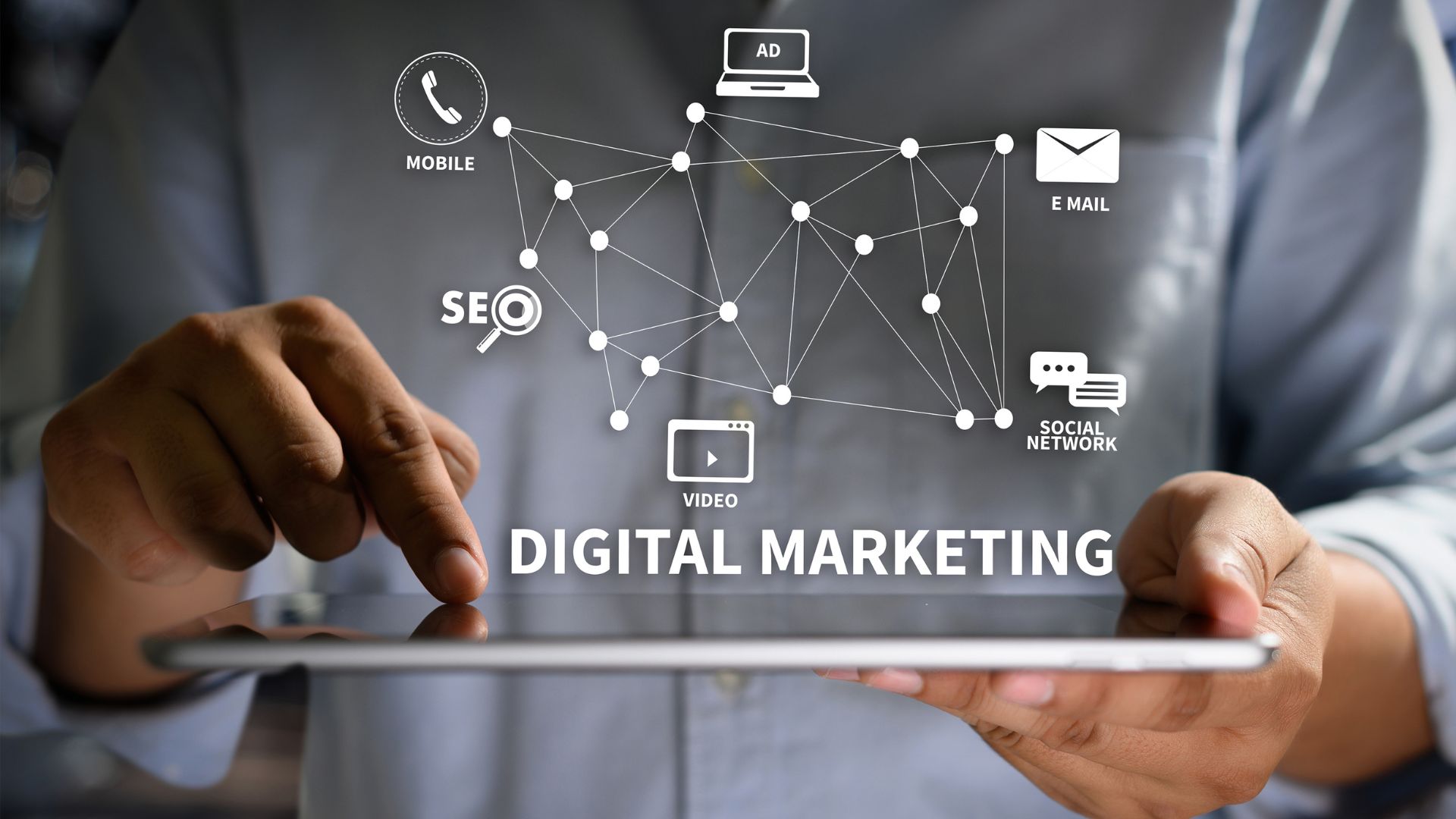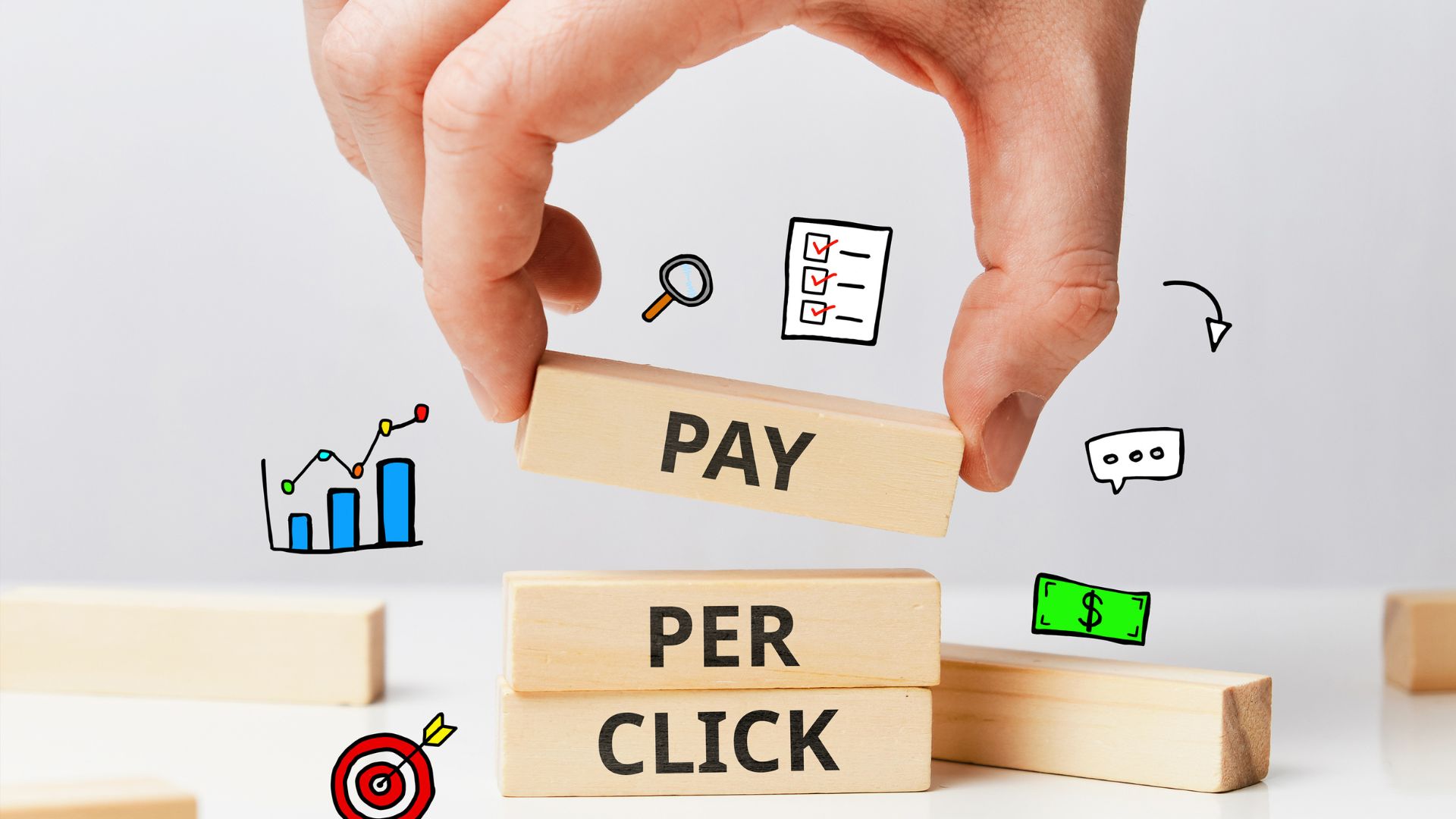Pay-per-click or PPC is a great way for businesses of all sizes to promote themselves online and can help generate leads that would otherwise be impossible with other forms of marketing.
Learning about PPC is the first step towards boosting your online marketing efforts. In this guide, the marketing department of our 3D rendering company shows you how PPC works in the digital marketing world and helps you understand how it can benefit your business.
Read on if you’d like to learn more about PPC or need help creating an effective PPC campaign!
#1. What is Pay-Per-Click (PPC) and How Does It Work?

A pay-per-click process is a form of digital advertising that uses search engines to deliver ads based on specific keywords. The most common PPC model is where advertisers bid on ad placement to display their ads in response to search queries that match the keywords they’ve bid on. Advertisers only pay when someone clicks on their ad, which means they can control their costs per click and maximize their return on investment.
Unlike other types of digital marketing like email marketing or social media advertising, which rely on users actively engaging with an advertiser’s content, PPC ads allow people who are already searching for a specific product or service online.
One of the biggest benefits of PPC is its scalability: the more advertisers are willing to pay, the more traffic they can get from search engines.
In general, PPC can be used in a variety of different ways:
- Display network – Advertisers pay based on impressions or clicks.
- Search network – Advertisers bid against each other for top placement on the search engine results page (SERP).
- Contextual network – Advertisers bid against each other for placement on a website or blog’s content pages.
Since the ads appear in search results, they are only shown based on certain keywords and phrases. These keywords are called “keyword targeting”. When someone types in these key phrases, the keyword triggers an auction where advertisers compete against each other by bidding the highest amount possible for the keywords that they want their ad to show up for.
#2. What is a Pay-Per-Click Process?

PPC, or pay-per-click, is a two-part process that includes an initial investment on the part of the advertiser to create and manage their ads, as well as a second investment in the form of ad clicks. It can be an effective strategy for digital marketing because it allows brands to get relevant traffic, which means that consumers are more likely to click on their ads and visit their websites.
One of the most important things you need to know about the pay-per-click process is your advertising objectives. These are the goals you want to achieve through your PPC campaign. It can be increasing brand awareness, driving traffic to your website, generating leads, boosting sales, or any other specific goal that could help you achieve your business objectives. But before all that, you need a plan!
A PPC plan is a detailed strategy used to achieve the goals of your business. It includes all the elements necessary for a successful campaign, such as a research plan and strategy, keywords, landing pages, ad copies, and creative visualizations.
#3. What Does PPC Mean for Digital Marketing?

PPC marketing is basically a method for buying traffic or getting your website to show up in search engine results and on other sites. It’s also known as paid search marketing.
When it comes to digital marketing, PPC has numerous advantages over other options such as SEO (organic search engine optimization). For starters, its costs can be kept low because it relies on bidding for keywords rather than hiring an army of writers or staff to manually increase your ranking on search engines.
There are other benefits too. Paid search ads can appear at the top of the list on Google’s results pages. This is a highly coveted spot as it is one of the first areas people see when they search for something online.
In addition, paid search ads allow advertisers to reach people in specific geographic locations and demographic groups, which makes them a powerful tool for businesses looking to attract customers locally or within.
Why Do Digital Marketers Use PPC?
PPC is used by digital marketers because it allows them to:
- measure the effectiveness of their campaigns;
- improve their ROI (return on investment);
- increase their customer base;
- get valuable feedback from customers;
- maintain a high level of transparency with their clients.
The most important advantage of using PPC is that you can track your results easily. You can see what keywords are generating the highest amount of traffic for your site, how much money you’re making per click, and how many clicks you’re getting each day.
#4. Pay-Per-Click Process Management

Pay-per-click management is a process that helps companies achieve their business objectives by creating, analyzing, and improving digital marketing campaigns. While PPC management strategies vary by industry and product type, the following steps are common to most successful digital marketing campaigns.
PPC management is a process of getting targeted traffic, leads, and sales through pay-per-click advertising. A business owner can set up PPC campaigns that will help generate leads or customers from Google or other search engines. Pay-per-click is an effective way for small businesses to reach target audiences quickly and with minimal investment of time and money.
The focus of PPC management is to increase the number of conversions, also known as leads or sales from your website visitors. PPC allows you to measure performance in terms of leads and sales directly from the search engine results pages.
Here are the basic steps of successful PPC management:
Expanding Market and Keywords Research
In order to create an effective PPC campaign, it’s essential to know how to perform keyword research.
The keywords you choose will determine the type of traffic your website receives and will affect how much you’ll pay per click. There are many different factors to consider when doing keyword research, including your target audience, the industry you’re in, and the product you’re selling.
Competitor Analysis
The next step is to do some competitor analysis. You need to find out what your competitors are doing, so you can do it better and get more traffic than them. You should take a look at the following things:
- What keywords are they targeting?
- What does their landing page look like?
- What digital marketing channels are they using?
- How much traffic/leads/sales they are getting from PPC ads?
- How much do they spend on PPC ads?
Geo-Targeting
Geo-targeting is a way to target your ads based on location. If you’re a local business, geo-targeting can help ensure that your customers see your ads when they search for keywords related to the services or products you offer.
Geo-targeted advertising lets you show ads only to people in specific geographic regions, so if you have a brick-and-mortar store, this might be an effective PPC strategy for driving foot traffic and sales at the point of sale.
#5. How to Get Started with a PPC Campaign?

PPC campaigns can take many forms, including text ads (on search engines), display ads (on websites), video ads and social media ads, CGI and immersive advertising.
Landing Page Creation and Optimization
The landing page is the web page that the user lands on after clicking on an ad. It’s important to note that a landing page can be any type of web content (e.g. blog posts, email campaigns, social media posts), but it typically refers to a specific webpage targeted at converting users who were exposed to your ads.
Landing pages are crucial in determining your conversion rates and should be designed specifically for the advertised product or service.
Generating Content for the Campaign
Utilize the power of 3D technology and CG images to create trending digital advertising that will compete with the leaders of the industry.
By creating 3D and AR ads that are more engaging, you can increase brand awareness, improve engagement and drive conversions. This will help you stand out from the competition and build stronger relationships with your audience.
Split-Testing and Analysis
Split-testing compares two or more variants of a webpage or campaign to determine which one performs better. This allows you to make informed decisions about your marketing efforts and optimize them for maximum effectiveness.
Analysis of the data from split tests provides insight into what type of content resonates with your audience, how long people stay on each page, how many people click through different links within the ad, etc.
Reporting and Metrics
The key to successfully running a PPC campaign is to keep track of all your stats. You want to know what keywords are working, AND which ones aren’t, and make adjustments accordingly. By taking this approach, you can ensure that your ads are getting seen by potential customers while saving money on ineffective ads that don’t convert well enough for them not to be worth paying for.
We provide 3D rendering services for ads that can be extremely helpful when it comes to making sure your pay-per-click process is effective. At CGIFurniture, we have a team of designers and 3D experts who can create realistic renderings for your business. If you are looking for 3D visualizations for advertising purposes, then contact us today!
Leave a Reply
Want to join the discussion?Feel free to contribute!


Very interesting stuff to read.
I will definitely be sharing this post with my friends and followers. Keep up the great work!
nice blog, thanks for sharing
very interesting and knowledgefull blog
PPC is definitely essential for the company, by the time SEO helps in a few months, you can take advantage of PPC till then. BTW very informative information. Will be sharing it with my colleagues. Thanks!
Useful information .Thank you for sharing information